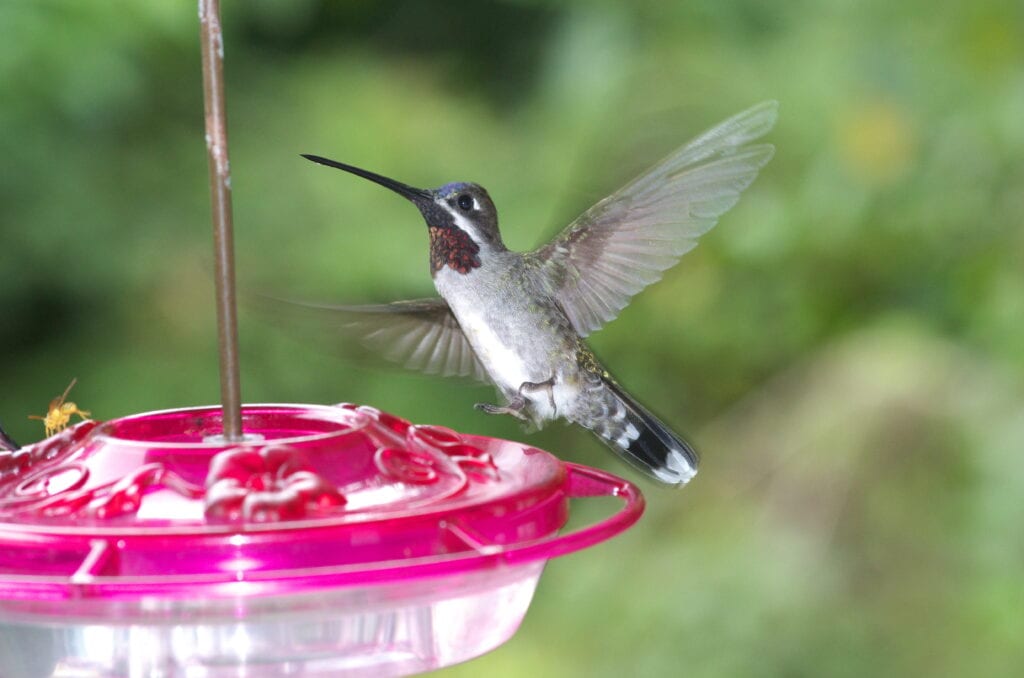It is well-known that alcohol, both naturally occurring and human-produced, is a part of the lives of some animals. From drunken waxwings, immobile from overindulging in fermenting berries, to thieving monkeys tipsy from stolen sips of tourists’ cocktails, alcohol has an acknowledged, if not entirely understood, role in the lives of certain wildlife. What you may not know is that your own backyard might be supplying some of the tiniest birds in the animal kingdom with naturally fermented alcohol.
Related Article: The American Kestrel: The Puzzling Decline of a Common Bird
Hummingbirds are nectar feeders. They consume up to 80% of their bodyweight in nectar every single day. All of that hovering, zipping, and diving takes a lot of energy and the hummingbird relies on the sugary nectar of flowers to give them that much-needed pep. Hummingbird feeders are popular backyard staples because they attract these charming little birds. Most feeders use a store bought or homemade blend of sugar and water, an appropriate nectar substitute for the hummer on the go. In both cases, the sugary mix sits in the sun, often for days on end, often producing a small amount of ethanol through the process of fermentation.
But does this mean that hummingbirds are getting drunk? A recent study from UC Berkeley examines the role of alcohol in the diet of Anna’s Hummingbirds by providing feeders with varying percentages of ethanol. The results indicate a fascinating decision-making process on the part of hummingbirds.
The results of the study found that hummingbirds showed equal preference for nectar with zero ethanol content and nectar containing 1% ethanol. This may not indicate a preference for alcohol, but it does indicate a certain level of tolerance. On the other hand, when the ethanol level was raised to 2%, the hummingbirds began to show less of a preference. The study concludes that hummingbirds are comfortable with consuming ethanol in certain “acceptable” quantities, but avoid overconsuming.
Worth noting is the fact that this same study measured the presence of ethanol in sugar water that was allowed to ferment in a feeder for two weeks. It was found that the ethanol level only rose to 0.05%, indicating that hummingbirds, while perhaps comfortable with a boozy 1% blend, are usually consuming at a much lower rate.
So, do hummingbirds routinely get drunk? Probably not. However, while 0.05% might seem like a negligible quantity of alcohol, remember that hummingbirds drink almost their entire weight in nectar each day. At this rate, the quantity of ethanol in their tiny bodies would be enough to pose some significance. It is likely that hummingbirds simply have a tolerance for alcohol in these naturally occurring quantities. The next phase of research for this study aims to measure the ethanol content in flowers and the degree of consumption by various nectar-eating birds around the world.
Popular Article: Minnesota Study Examines Swallow Eggs for Forever Chemicals

